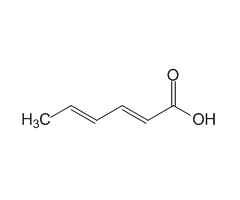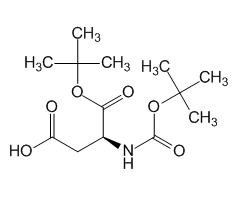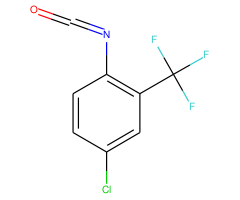基本信息
| 分子式 | C18H14F4N2O4S |
| 分子量 | 430.37 |
| 沸点 | 194-198 |
| MDL编码 | MFCD00869971 |
| Merck | 14,1200 |
| 存储条件 | Freezer -20℃ |
产品描述
Bicalutamide是一种androgen receptor (AR)拮抗剂,在LNCaP/AR(cs)细胞系中IC50为0.16 μM。
靶点(IC50 & Targe)
Androgen Receptor,0.16μM
体外研究
Bicalutamide 经过一个拮抗剂到激活剂的转变,刺激AR活性。在缺乏合成雄激素R1881的情况下,Bicalutamide处理LNCaP/AR(cs)细胞,改变基因表达,与其记录的良好激活剂活性相符合。Bicalutamide诱导细胞增殖,这种作用存在剂量依赖性,且只部分抗R1881的效果。Bicalutamide 处理呀显著产生大量核AR,虽然比R1881处理的少。Bicalutamide通过诱导DNA在AR靶基因结合,而具有部分激活剂活性,且不完全抗 R1881的效果。在R1881存在时, Bicalutamide部分激活 VP16-AR调节的转录,指导AR 结合到DNA上。使用AR驱动的荧光素酶报告结构稳定整合到LNCaP/AR-luc细胞中。在R1881存在时, Bicalutamide只微弱且部分抗 VP16-AR调节的转录,IC50 为 0.35 μM。[1] 微摩尔 Bicalutamide显著降低集落形成,这种作用存在剂量依赖性。[2] 双重抑制 AR 和 mTOR信号通路产生进一步好处,在体外,Ridaforolimus-Bicalutamide联用作用于前列腺癌细胞,与单独药剂处理相比,产生协同抗增殖效果。[3]
体内研究
Bicalutamide按规定的次最大剂量单独处理,降低79%肿瘤生长。Ridaforolimus-Bicalutamide 联用具有改进的和有效的抗肿瘤活性,几乎完全废除肿瘤生长。联合使用具有良好耐受性,在处理过程中体重没有明显改变。联用处理的小鼠中,血浆PSA水平与肿瘤生长紧密相关。[3]
激酶实验
Whole-cell competitive binding assays:
Whole-cell competitive binding assays are performed in LNCaP/AR(codon-switch) (LNCaP/AR(cs)) (harbors a mixture of exogenous wild-type AR and endogenous mutant AR (T877A)) and cells propagated in Iscove's or RPMI media supplemented with 10% fetal bovine serum, or during the assay with 10% charcoal-stripped, dextran-treated fetal bovine serum (CSS). Cells are pre-incubated with 18F-FDHT, increasing concentrations (1pM to 1μM) of cold Bicalutamide are added, and the assay is performed to measure specific uptake of 18F-FDHT (4). IC50 values are determined using a one site binding model with least squares curve fitting and R2 > 0.99.
细胞实验
Cell lines: C4-2细胞系
Concentrations: 0 nM-1 μM
Incubation Time: 72小时
Method: 指数生长的C4-2细胞接种到96孔板中,在37oC下温育过夜。24小时后,吸除其中一个板,然后储存在-80oC中,其他使用10倍系列浓度 Ridaforolimus(1000 nM 到0.0001 nM)或乙醇(对照)处理。在 37oC下培养72小时,使用Cy qUANT细胞增殖检测试剂盒测评细胞生长。
(Only for Reference)
动物实验
Animal Models: 携带C4-2细胞的雄性裸鼠
Formulation: 4% 乙醇, 5% Tween-80, 和 5% PEG
Dosages: 10 mg/kg
Administration: 口服处理
(Only for Reference)
参考文献
[1] Clegg NJ, et al. Cancer Res. 2012, 72(6), 1494-1503.
[2] Colquhoun AJ, et al. Prostate Cancer Prostatic Dis. 2012.
[3] Squillace RM, et al. Int J Oncol. 2012.
安全信息
| 防范说明 | P262 |
| RTECS | TX1413500 |









